Program And Workshop Outline
Thursday 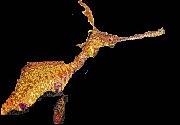
Registration desk will be open from 3 pm
This will allow you to arrive during the afternoon and familiarise yourself with the camp and the Township of Portsea. We have arranged for a guided rock pool walk or you could go on a snorkel under the Portsea pier searching for dragons.
Friday
Morning: Official opening and Welcome Keynote addresses: Biodiversity, Conservation and Education.
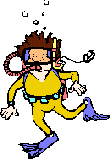 Afternoon: Workshops and Field trips Afternoon: Workshops and Field trips
- Mangroves and Marshes - A bus trip to Westernport and exploration of mangrove forests and salt marshes
- Snorkelling the Subtidal - An introduction to snorkelling as a way into the subtidal world. Brief theory session in library then trip to pier to touch tanks and snorkel.
- Sea Shores and Middens - Explorations of coastal geomorphology and an archaeological perspective on coastal indigenous culture
- Investigating invertebrates - Immerse yourself in the astounding and outrageous world of marine invertebrates
- Seaweeds & dolphins - This may seem like a strange concoction - marine plants and marine mammals, but these two are features of the southern Australian marine scene.
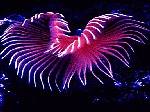
Evening: "These are a few of my favourite things" - a presentation of the best ten slides or pieces from some great marine photographers and film makers.
Saturday  Morning: Ferry trip across the Rip Morning: Ferry trip across the Rip
Marine Parks in Port Phillip Bay
Welcome at MAFRI, Queenscliff
Keynote: Linking Science and the Community
Panel presentation and discussion groups on links between research and education
Afternoon: Workshops and Field trips
- Seadragon Monitoring - Community based monitoring program investigating the distribution and ecology of seadragons.
- Farsight - Satellite Images - A new software program designed to allow students to access and use remote sensing to study ocean phenomena.
- Sand Dune Revegetation -A field trip to investigate a highly successful schools and community revegetation project.
- Swan Bay Discovery Tour - A canoe trip to investigate the seagrass community of Swan Bay and impacts on the Bay
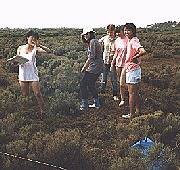 Swan Bay Integrated Catchment - A field trip to observe strategies implemented by community groups to effect integrated Catchment management at Swan Bay Marine Reserve Swan Bay Integrated Catchment - A field trip to observe strategies implemented by community groups to effect integrated Catchment management at Swan Bay Marine Reserve
- Student Monitoring Programs - Run by Secondary Students from Swansea High School, NSW a practical session on the application of monitoring techniques.
- Bay Litter Watch - Down the drain issues. A highly successful approach to a Litter and Catchment education program. How it works.
Evening: Conference Dinner
Sunday Morning: Panel Presentation: Marine and Coastal Education - a Community and Schools Perspective
Seaweek '98
MESA AGM
Afternoon: Workshops
Session A
- Publishing for Marine Education - Learn from authors and publishers the secrets to producing your own books
- Fishing Culture - A workshop investigating approaches used in working with different cultural groups to effect fisheries management
- Best practice in marine fieldwork - Using adult education practices to establish best practices, exchange experiences in the field and match with a set of criteria
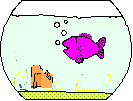
- Inside track to winning grants - the do’s and don’ts for your next submissions
- Marine Aquaria: The balanced community technique - Description of establishment of a 2000 litre refrigerated marine system, showcasing difference marine communities in a laboratory.
- Beach Secrets - education incognito - Insights into using costumes and drama to bring home marine concepts and conservation issues
Session B
- Diving into Cyberspace - combining multimedia technology with marine education - interactive TV, WWW and a whole lot more
- Octopus’s Garden - Building a resource treasure chest for early childhood and lower primary groups
- Secondary Sharing - Who's doing what in marine programs for secondary schools. Bring some of your favourite tips and leave with a whole lot more.
- Coastal Photo survey - This innovative project, explores the many opportunities to use the power of photography to monitor coastal change.
- Volunteers in Community Marine & Coast Education - the benefits and some of the pitfalls
There are many opportunities to discover the magnificent environment of Port Phillip Bay through our range of Post Conference Trips. To cater for a range of interests the following programs will be offered.
Snorkeling at Popes Eye and with the Seals - Popes Eye is Australia smallest Marine Reserve and supports a great range of temperate marine life. The Bays seals are some of the most interesting animals you’ll ever interact with.
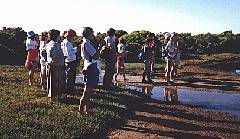
Scuba Dive - dive the spectacular Rip with its magnificent kelp forests and rocky reefs. Come eye to eye with blue devils and witness magnificent benthic communities .
Mud Islands adventure cruise. Visit this unique group of Islands in the middle of Port Phillip Bay. A must for wader bird and seagrass enthusiasts
Bob Moffatt, a founding member of MESA and a marine education publisher will be running a full day post conference workshop based on his new publication, 'An Introduction to Marine Studies'. |